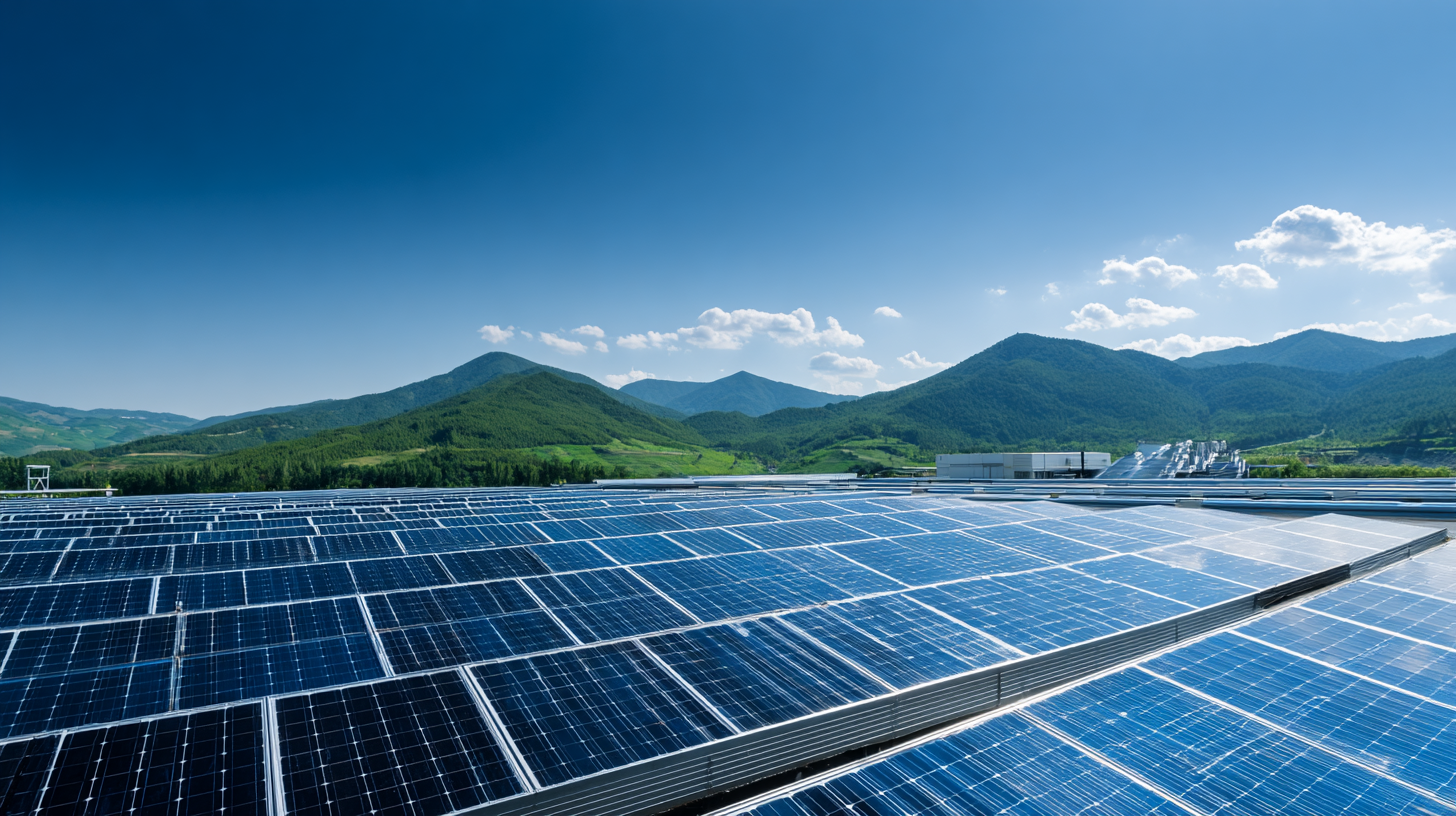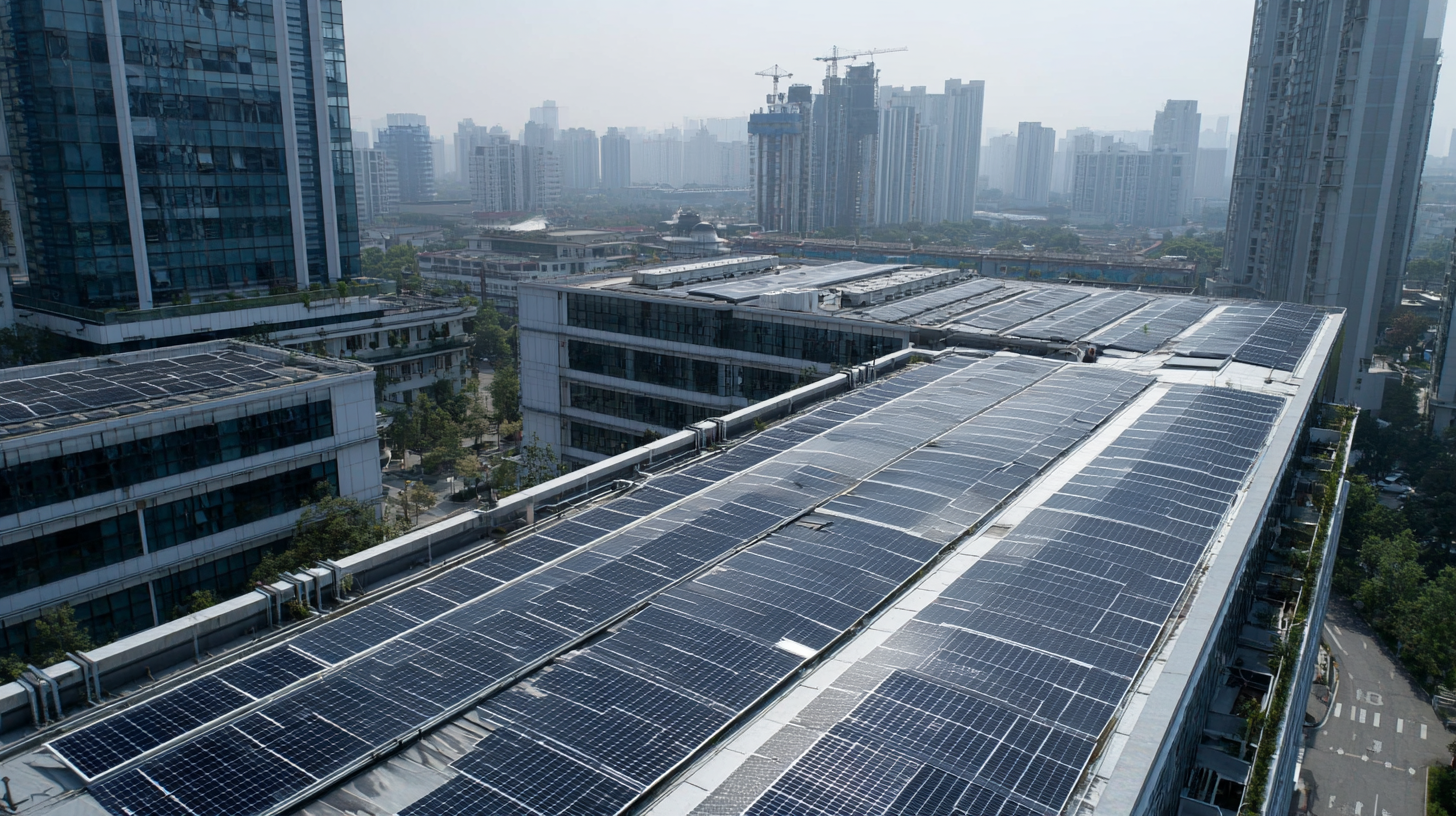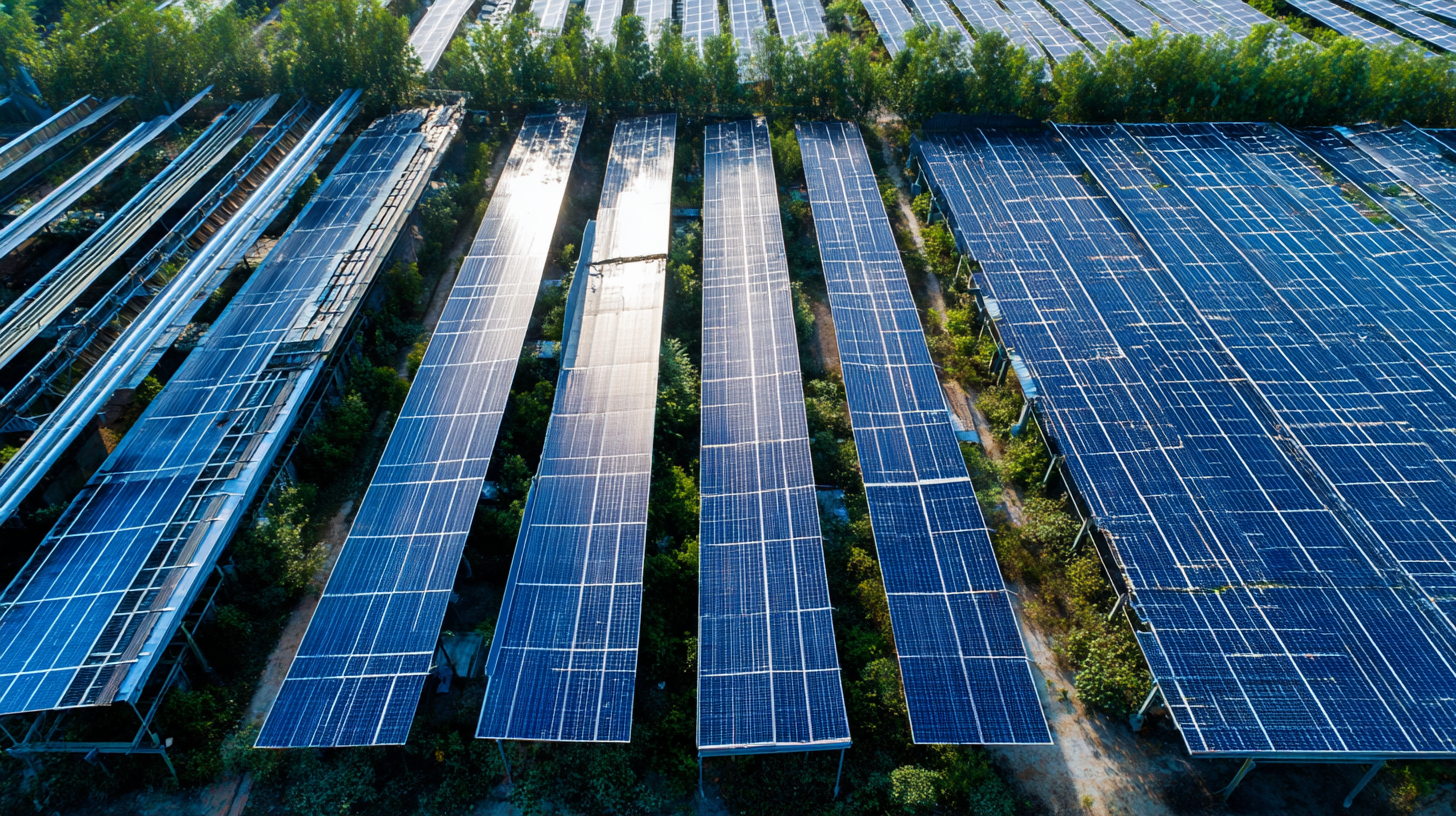Tel : 94870 36000, 94860 36000, 94890 36000
Empowering Global Trust: Top-Tier Water Solar Panels from Leading Chinese Factories
As the global demand for renewable energy sources continues to rise,
 Water Solar Panels have emerged as a vital component in harnessing solar energy for sustainable water management.
According to the International Energy Agency, the solar power capacity is expected to triple by 2030,
driven in part by the growing need for efficient water heating solutions.
In this context, sourcing high-quality water solar panels from reputable suppliers is crucial for ensuring
performance and reliability.
However, the challenge lies in navigating the vast market landscape, particularly when looking to leading Chinese factories known for their
cutting-edge technology and manufacturing excellence.
This blog aims to empower readers with a comprehensive checklist on how to identify and collaborate with
top-tier suppliers, ensuring a successful investment in water solar panels that contribute to both
environmental sustainability and energy independence.
Water Solar Panels have emerged as a vital component in harnessing solar energy for sustainable water management.
According to the International Energy Agency, the solar power capacity is expected to triple by 2030,
driven in part by the growing need for efficient water heating solutions.
In this context, sourcing high-quality water solar panels from reputable suppliers is crucial for ensuring
performance and reliability.
However, the challenge lies in navigating the vast market landscape, particularly when looking to leading Chinese factories known for their
cutting-edge technology and manufacturing excellence.
This blog aims to empower readers with a comprehensive checklist on how to identify and collaborate with
top-tier suppliers, ensuring a successful investment in water solar panels that contribute to both
environmental sustainability and energy independence.
Table of Contents
[Hide]
Transforming Water Management: The Role of Solar Panels in Sustainable Farming Practices
In the quest for sustainable farming practices, solar panels have emerged as an innovative solution for transforming water management. Farmers are increasingly turning to solar-powered systems to optimize water usage, reduce energy costs, and enhance overall farm productivity. By harnessing the sun's energy, these solar panels can power irrigation systems, ensuring that water is delivered efficiently to crops, even in remote areas where electricity may not be readily available.
The integration of water solar panels not only conserves water but also minimizes the environmental impact of traditional farming methods. With the ability to automate and control irrigation based on real-time weather data, farmers can significantly reduce water consumption while improving crop yields. This sustainable approach not only helps in combating water scarcity but also supports the agricultural sector in adapting to climate change challenges, strengthening resilience for future generations.
Leading Chinese factories are at the forefront of this technology, producing top-tier solar panels specifically designed for agricultural applications. By offering high efficiency and durability, these innovations empower farmers to embrace renewable energy solutions that align with eco-friendly practices. As the agricultural landscape evolves, solar panels are becoming indispensable tools in the pursuit of sustainable farming, paving the way for a more responsible relationship with our planet's resources.
Harnessing the Sun: An Overview of Leading Solar Panel Models for Water Treatment
The use of solar energy is revolutionizing water treatment processes around the globe, enabling more efficient and sustainable solutions for communities in need. With advancements in photovoltaic (PV) technology, leading solar panel models provide innovative ways to harness the sun, making them essential components in water management systems. Integration of smart water management with solar-powered pumping systems not only enhances access to clean water but also promotes environmental sustainability.
Recent developments highlight the importance of utilizing solar energy in various applications, including cutting-edge agricultural practices like aquaponics. By deploying hybrid machine learning models, we can predict PV output more accurately, ensuring that solar energy is effectively harnessed even in rural areas where traditional energy sources are scarce. This creates a powerful synergy between green technology and essential services, bolstering efforts to counter climate change and support sustainable development.
In addition to water treatment, solar power is penetrating our daily lives in numerous ways, from smart home devices to transportation solutions. These advancements affirm the growing importance of solar energy as a reliable resource, validating the commitment of leading manufacturers to create top-tier products that underpin global trust and environmental responsibility.

The Economics of Water Solar Panels: Cost-Benefit Analysis for Global Implementation
The integration of water solar panels, particularly floating photovoltaic (FPV) systems, presents a promising opportunity for enhancing agricultural practices while simultaneously addressing energy needs. A recent techno-enviro-economic analysis demonstrated that a grid-connected solar-powered floating PV water pumping system can optimize water usage on farmland, featuring a 165 kW PV array. Despite an initial investment of around 54,696 JD, the economic viability is underpinned by substantial CO2 emission reductions and long-term operational savings, showcasing the cost-benefit potential of such technologies.

Floating solar panels not only produce renewable energy but also aid in water retention in open reservoirs. In regions like Uttar Pradesh, India, the levelized cost of electricity (LCOE) from a 50 MW FPV plant can be as low as 46 USD/MWh, indicating a viable path to cost-effective energy generation. This dual function of FPV systems reinforces the broader need for sustainable practices in water and energy management, highlighting the potential for global implementation and adaptation of innovative solar technologies.
Innovative Technologies: Advancements in Chinese Manufacturing of Solar Water Solutions
The recent advancements in Chinese manufacturing of solar water solutions have revolutionized the way we harness renewable energy. With a commitment to innovative technologies, top-tier factories in China are not only enhancing the efficiency of solar panels but also improving their sustainability and affordability. High-tech materials and cutting-edge processes are now enabling manufacturers to produce solar water panels that can significantly reduce energy costs and provide clean water access, especially in remote and underserved regions.
Moreover, these innovations are paving the way for specialized designs tailored to various environments. For instance, the integration of smart sensors and IoT technologies allows for real-time monitoring and optimal performance under different weather conditions. This adaptability not only maximizes energy output but also extends the lifespan of the panels. As a result, the global market is witnessing an increasing demand for these advanced solar water solutions, reflecting a growing trust in the capabilities of Chinese manufacturers to deliver high-quality, reliable products that contribute to a sustainable future.
Global Market Trends: The Rise of Solar Water Panels in Sustainable Energy Initiatives
As the world increasingly turns to sustainable energy solutions, solar water panels have emerged as a critical component of eco-friendly initiatives. The rising demand for renewable energy sources highlights the growing recognition of solar technology not only as a means to reduce carbon emissions but also as a pathway to energy independence. Leading Chinese factories are at the forefront of this revolution, producing high-quality, efficient solar water panels that cater to both domestic and international markets.
The integration of solar water panels into sustainable energy initiatives is fueled by shifting global market trends. Consumers and governments alike are prioritizing investments in renewable energy to combat climate change and ensure a sustainable future. With advancements in technology, these solar panels are becoming more affordable and accessible, making it easier for a broader audience to adopt clean energy solutions. As countries worldwide set ambitious targets for reducing their carbon footprints, the adoption of solar water panels is poised to play a crucial role in achieving these goals.
Empowering Global Trust: Top-Tier Water Solar Panels from Leading Chinese Factories
| Panel Type | Efficiency (%) | Average Cost (USD) | Energy Output (kWh/year) | Warranty (Years) |
|---|---|---|---|---|
| Monocrystalline | 22.5 | 250 | 3000 | 25 |
| Polycrystalline | 19.5 | 210 | 2500 | 20 |
| Bifacial | 21.0 | 300 | 3500 | 30 |
| Thin Film | 13.0 | 150 | 1800 | 15 |
| Building-Integrated | 17.5 | 400 | 2400 | 25 |

